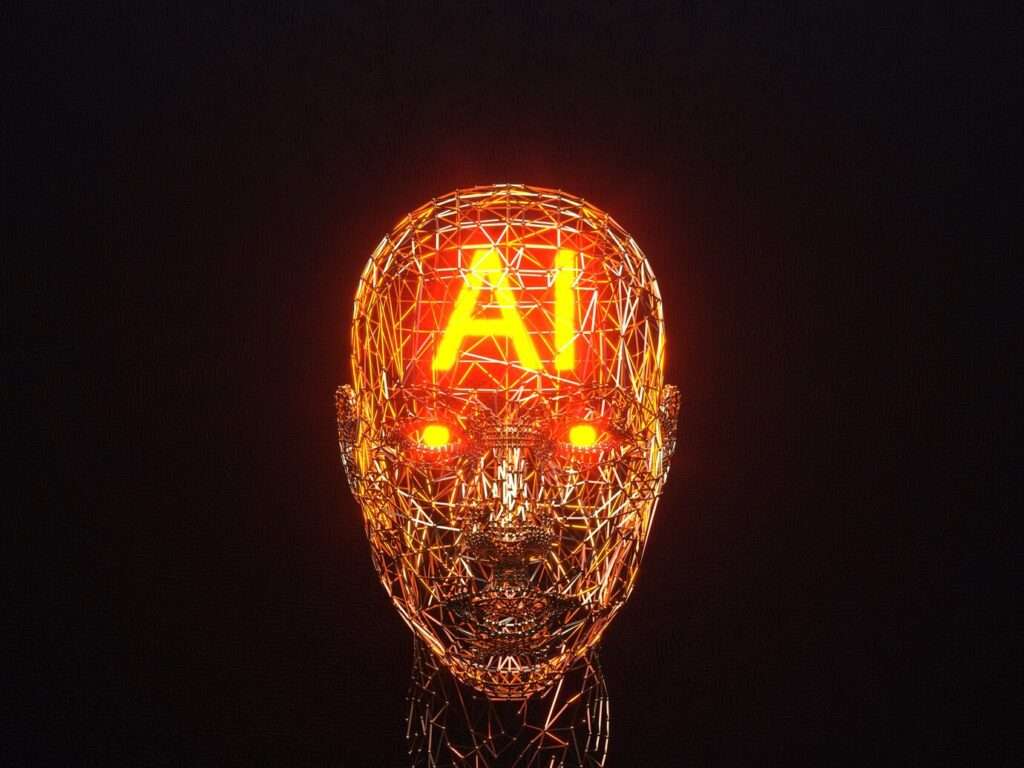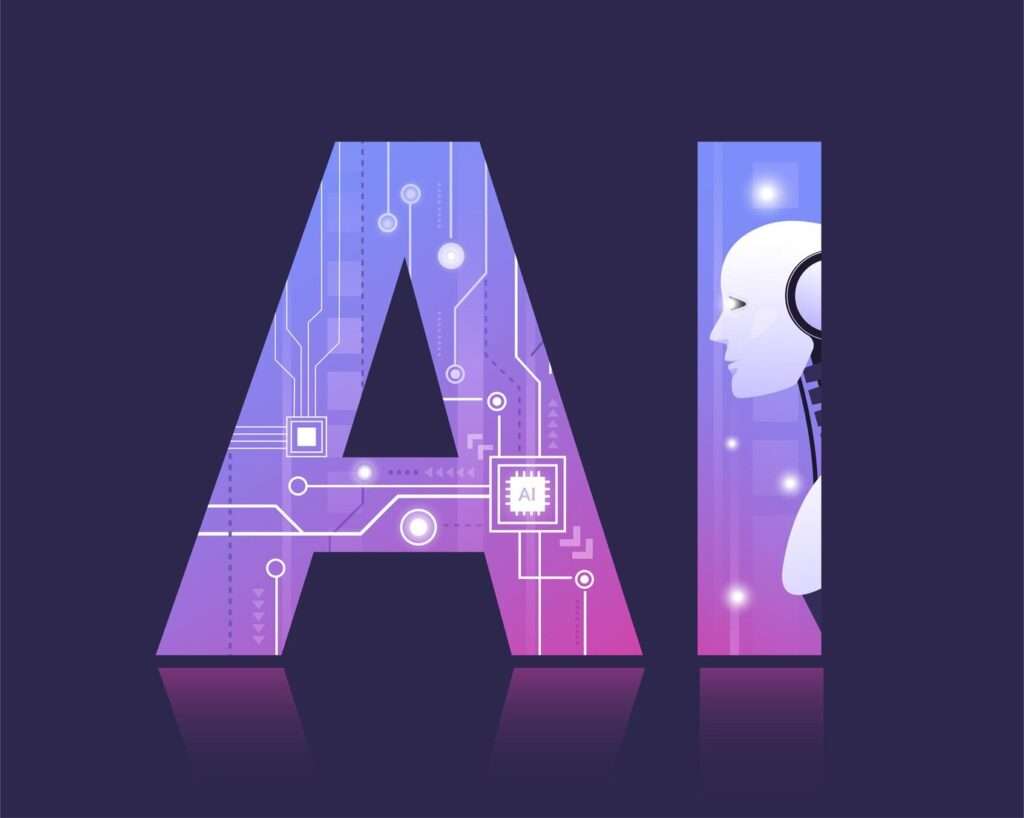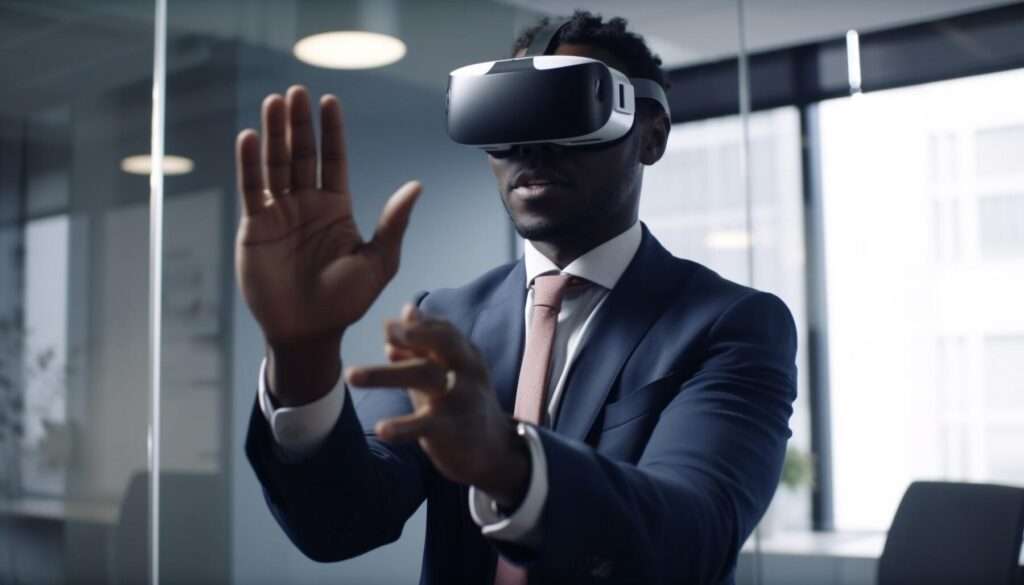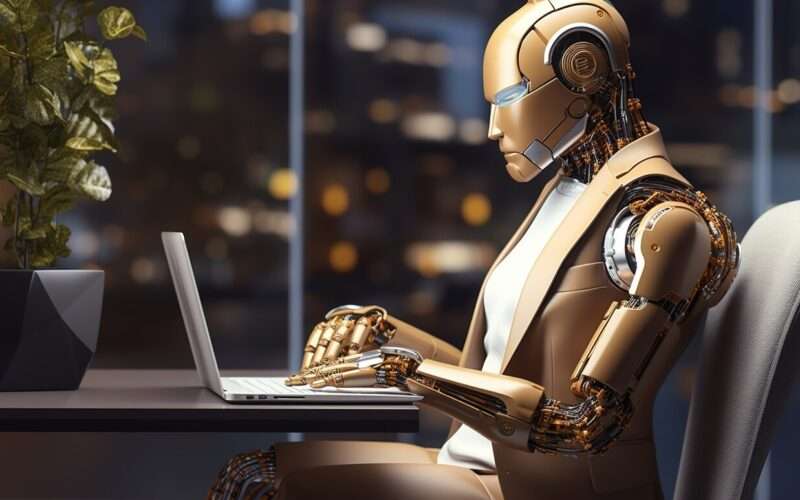Artificial intelligence (AI) is one of the most exciting and rapidly developing fields in technology today. From self-driving cars to virtual assistants, AI is transforming the way we live and work. But as AI becomes more advanced, there are growing concerns about its impact on society. Will AI save humanity – or destroy it?

The Promise of AI
Artificial intelligence (AI) has the potential to revolutionize many aspects of our lives. It can help us solve complex problems, automate tedious tasks, and make our lives easier and more convenient. AI-powered medical devices can help doctors diagnose diseases more accurately and quickly, while AI-powered chatbots can provide customer service around the clock. AI has also made our homes smarter and more secure, revolutionized healthcare and education, and changed the way we live, work, and learn.
AI promises considerable benefits for businesses and economies through its contributions to productivity growth and innovation. AI has the potential to boost overall economic productivity significantly, and it could add some $13 trillion to total output by 2030 and boost global GDP by about 1.2% per year.
The Risks of AI

As AI becomes more advanced, there are concerns that it could become uncontrollable and pose a threat to humanity. Here are some of the risks associated with AI:
- Job Losses: AI-powered job automation is a pressing concern as the technology is adopted in industries like marketing, manufacturing, and healthcare. By 2030, tasks that account for up to 30 percent of hours currently being worked in the U.S. economy could be automated.
- Deepfakes: AI-generated deepfakes are becoming increasingly sophisticated and realistic, making it difficult to distinguish between real and fake videos. This has serious implications for national security, politics, and privacy.
- Privacy Violations: AI can be used to collect and analyze vast amounts of personal data, raising concerns about privacy violations and data breaches.
- Algorithmic Bias: AI algorithms can be biased if they are trained on biased data. This can lead to discrimination against certain groups of people.
- Socioeconomic Inequality: AI has the potential to exacerbate socioeconomic inequality by automating low-skilled jobs and increasing the demand for high-skilled workers.
- Weapons Automatization: There are concerns that AI could be used to develop autonomous weapons that could cause widespread destruction.
- Uncontrollable Self-Aware AI: There are concerns that AI could become uncontrollable and pose a threat to humanity if it becomes self-aware.
The Future of AI

So what’s next for the AI world? The truth is, no one knows for sure. However, there are steps we can take to ensure that AI is developed in a safe and responsible way.
- AI will transform scientific research: With the help of AI and machine learning (ML), we can expect to see orders of magnitude of improvement in what can be accomplished in scientific research. AI enables an unprecedented ability to analyze enormous data sets and computationally discover complex relationships and patterns. AI, augmenting human intelligence, is primed to transform the scientific research process, unleashing a new golden age of scientific discovery in the coming years.
- AI will become a pillar of foreign policy: Governments are likely to invest heavily in AI. The US Secretary of Defense Lloyd J. Austin III has publicly embraced the importance of partnering with innovative AI technology companies to maintain and strengthen global US competitiveness. The National Security Commission on Artificial Intelligence has created detailed recommendations, concluding that the US government needs to greatly accelerate AI innovation.
- AI will revolutionize consumer experiences: AI will enable businesses to provide personalized experiences to their customers. AI-powered chatbots and virtual assistants will become more sophisticated and capable of handling complex tasks. AI will also help businesses to optimize their supply chains and improve their logistics.
- AI will help tackle climate change: AI can help us to monitor and predict natural disasters, optimize energy consumption, and reduce carbon emissions. AI can also help us to develop new materials and technologies that are more sustainable and environmentally friendly.
- AI will transform healthcare: AI can help us to diagnose diseases more accurately and at an earlier stage. AI can also help us to develop new drugs and treatments that are more effective and have fewer side effects. AI can also help us to improve patient outcomes and reduce healthcare costs
What are some ethical concerns with AI?
Here are some of the most pressing ethical concerns:
- Privacy and surveillance: AI can be used to collect and analyze vast amounts of data about individuals, raising concerns about privacy and surveillance. There is a risk that AI could be used to monitor people’s behavior without their knowledge or consent.
- Bias and discrimination: AI systems can be biased and discriminatory, reflecting the biases of their creators or the data they are trained on. This can lead to unfair treatment of certain groups of people.
One example of bias in AI is facial recognition technology. Facial recognition algorithms have been shown to be less accurate when identifying people with darker skin tones and women. This is because the data sets used to train these algorithms are often biased towards lighter-skinned individuals and men.
As a result, facial recognition technology can lead to unfair treatment of certain groups of people. Another example of bias in AI is in hiring algorithms. In 2015, Amazon built a program to review resumes of job applicants. However, the system was found to be biased against women for technical roles . These examples highlight the importance of addressing bias in AI and ensuring that AI is developed and used in an ethical and responsible manner.
- Transparency and explainability: AI systems can be opaque and difficult to understand, making it hard to know how they are making decisions. This can make it difficult to hold AI systems accountable for their actions.
- Job displacement: AI has the potential to automate many jobs, which could lead to significant job displacement. This could have a negative impact on workers and their families.
- Autonomous weapons: There are concerns that AI could be used to develop autonomous weapons, which could make decisions about when to use lethal force without human intervention. This raises serious ethical concerns about the use of force and the role of humans in warfare.




